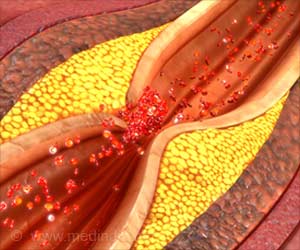Highlights
- Scientists used genetic sequencing on a family to prove that genetic variants inherited from both parents can cause cardiac disease in siblings
- The researchers discovered that the father had mutations in two genes, MKL2 and MYH7, which predisposed him to heart disease
- The three affected siblings also inherited one mutation from the mother disrupting one copy of the rare NKX2-5 variant which is required to keep the heart healthy
Combination of Three Gene Mutations
1% of all infants are diagnosed with complex cardiac diseases which require surgeries and lifelong medications. It is clear that these diseases have some underlying genetic mechanisms which were so far not well understood. Scientists from the Gladstone Institutes and the University of California, San Francisco (UCSF) used genetic sequencing on a family to prove that genetic variants inherited from both parents can cause cardiac disease in siblings. The researchers used the case of a nuclear family with three children who had childhood-onset cardiomyopathy. Using whole exome sequencing on the parents and children, they found that the father had mutations in two genes, MKL2 and MYH7, which predisposed him to heart disease. The three affected siblings also inherited one mutation from the mother disrupting one copy of the rare NKX2-5 variant which is required to keep the heart healthy.Read More..
Link Between Gene Mutations and Heart Disease
According to first author Gifford, the findings indicated that the inheritance of the mutated gene from the mother compounded the problem caused by the father’s genes and resulted in a more severe form of heart disease.Finally, the research team also generated induced pluripotent stem cells from each of the family members and transformed the stem cells into beating heart cells. The cells from the children with all three mutations had signs of the disease. The parent’s cells did not show any signs of disease.
The research is significant because it proves how people with the same mutation can have different forms of the disease with varying severity. For example, the mutation MYH7 was previously linked to the development of both congenital and adult-onset heart disease. The research also indicates that the modifier gene variant NKX2-5 has an impact on MYH7 and changes how the disease manifests.
According to Professor Srivastava, professor of Pediatrics and Biochemistry and Biophysics at UCSF; the study explains how modifier genes have a role in changing the severity and development of any disease caused by genetic mutations. This discovery is a stepping stone towards identifying genetic modifiers of diseases and using it to develop novel targeted therapeutics.
The study titled “Oligogenic inheritance of a human heart disease involving a genetic modifier” was published on May 31, 2019, in the journal Science.
- Gifford, A. C., Ranade, S. S., Samarakoon, R, Salunga, T.H. et al. (2019). Oligogenic inheritance of a human heart disease involving a genetic modifier. Science, Vol. 364, Issue 6443, pp. 865-870. - (https://science.sciencemag.org/content/364/6443/865)
Source-Medindia
















